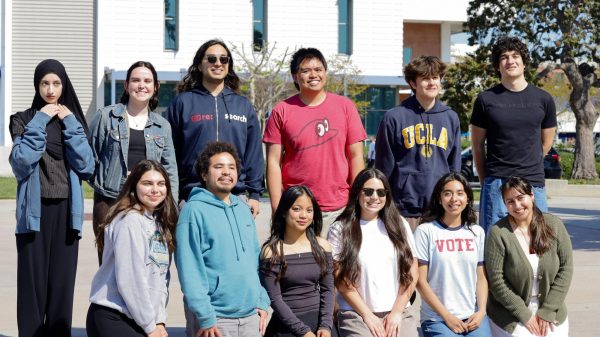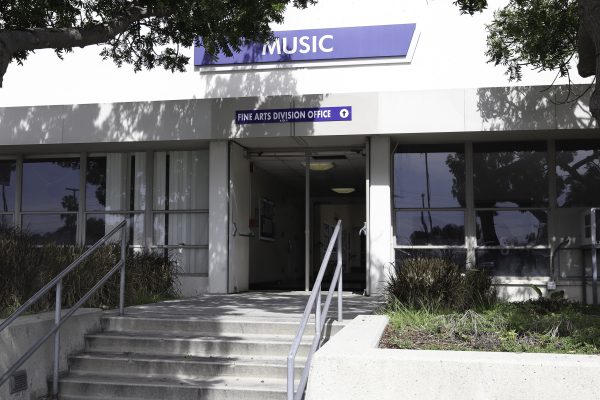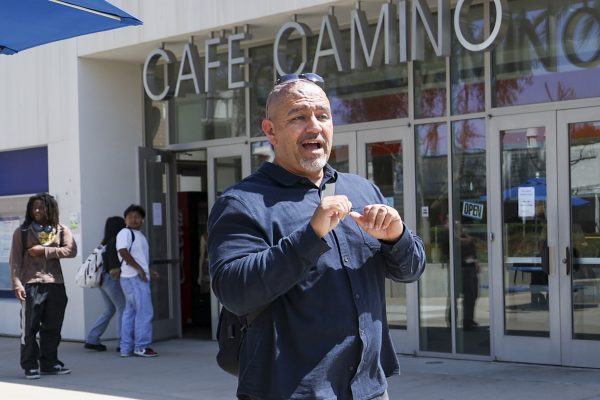Anti-racist/equity professional development mandate for all faculty at El Camino College
El Camino College’s Academic Senate presented its proposal to mandate anti-racist/equity professional development for all faculty, during their Oct. 20 meeting.
There was a 32/1 vote in favor of the proposal, as some Academic Senate members were not present. Darcie McClelland, president of the academic senate, said there will be an implementation date for the mandated training before Spring 2021.
McClelland said that the Academic Senate incorporated the African American Employee Network’s requests, after they sent out an email in September stating that African American faculty members do not feel safe on campus because of microaggressions and racist comments.
“We need to support our black colleagues, our black students, and make sure that they all feel safe and welcome,” McClelland said. “And when people are telling us they’re not, it is our job to fix that. It is our responsibility. And quite honestly, people should want to fix that. I want to make our community one.”
Some of the African American Employee Network’s requests included training and creating a system for reporting microaggressions, into the final resolution of the proposal.
After an implementation plan is presented Nov. 3 at the next Academic Senate meeting, the district and federation will negotiate the proposal and possibly incorporate the training into faculty contracts.
Stacy Allen, sociology professor and vice president of the academic senate for faculty development, helps plan the professional development opportunities for faculty at El Camino College.
Allen said that there are 24 hours of professional development already mandated for faculty. This anti-racism and equity training will account for four of these 24 hours.
Faculty have the flexibility to complete their mandated four hours of professional development in a variety of options that focus on anti-racism and equity and are compensated for their time.
“More faculty will have access to training so they are equity-minded in their teaching,” Allen said.
She hopes that students will be directly impacted in a positive way by this faculty training.
“We want them to know how committed we are,” Allen said. “It’s going to make students appreciate being at El Camino College, knowing that faculty are really committed to being culturally responsive, culturally relevant, and meeting the needs of all of our students, so that we have an inclusive and welcoming campus.”
Giancarlo Fernandez, Associated Students Organization (ASO) President, Director of Equity, Diversity, and Inclusion for the Inter-Club Council (ICC), and co-chair for the Student Equity Advisory Council (SEAC), spoke on behalf of all of these student-led organizations at El Camino College. He is also on the Advisory Committee on Race and Equity.
Fernandez said that SEAC has a mission to promote equity, diversity, and inclusion on campus by creating events that spread cultural awareness and create a sense of belonging for all students and their experiences.
“SEAC, and those that represent SEAC, are very happy to see the Academic Senate create a resolution, and we’re crossing our fingers that it gets passed,” Fernandez said.
He said that ASO is connected with SEAC and other student organizations such as ICC and upholds the same values.
“We believe that this is again, is a crucial step in creating a more welcoming, a more inclusive environment to such a diverse group of students, a diverse group of employees that we have on campus,” Fernandez said.
Fernandez acknowledged the African American Employee Network for their “courageous” email sent to El Camino College faculty.
“I know as a man of color, it is very difficult for me to be open about those types of things as well. And so, I commend the organization for speaking out and leading by example, because that shows students that it’s okay for them to do that as well. And only through that we are able to create change and create an anti-racist culture,” Fernandez said.
Anna Brochet, Extended Opportunity Programs and Services (EOPS) counselor at El Camino College, feels encouraged by the mandated professional development training and hopes it will be passed to become implemented into faculty contracts.
“I see the mandate as really speaking to the importance of the issue and our commitment to doing what we can as a school, as an institution, and individually to do our part to stop the perpetuation of these unjust systems in our country,” Brochet said.
She also noted that there are significant issues students and faculty of color face daily.
“You cannot deny someone’s experience,” Brochet said. “Why not get trained to completely be aware on what we can do better to support our students and each other?”








